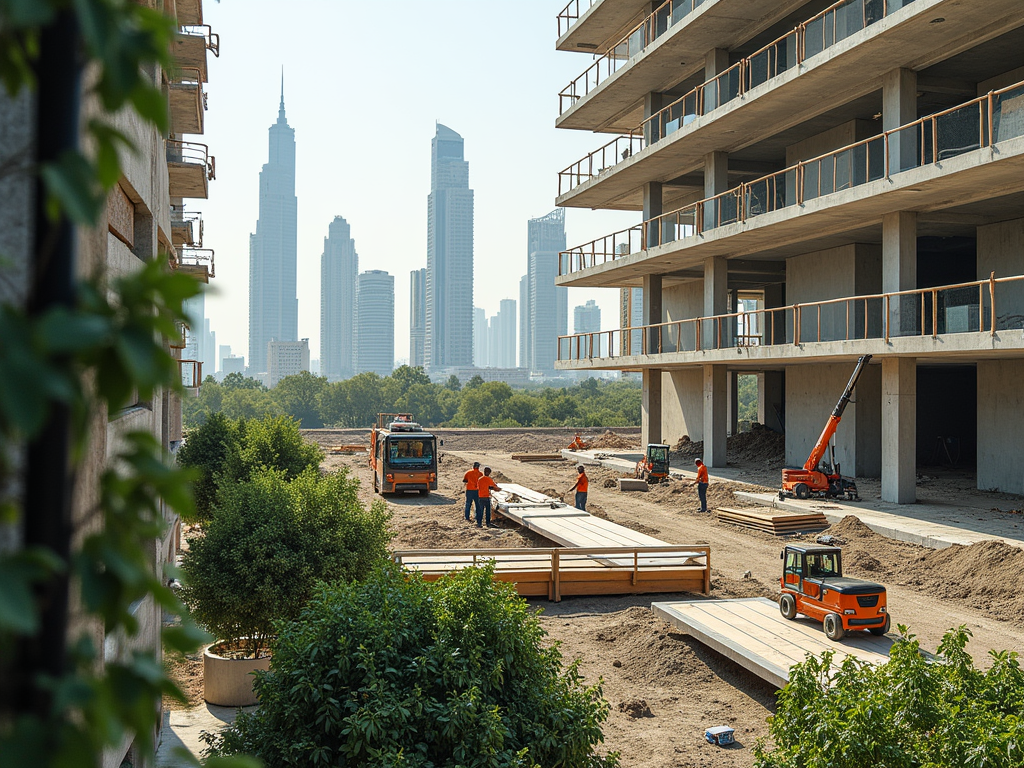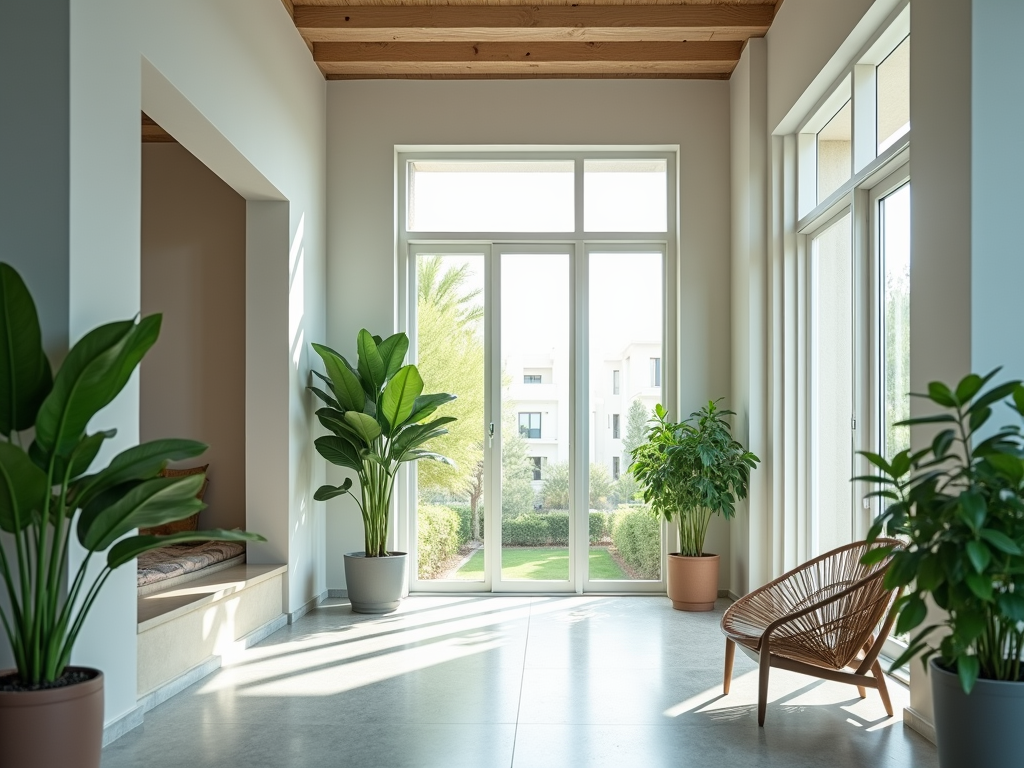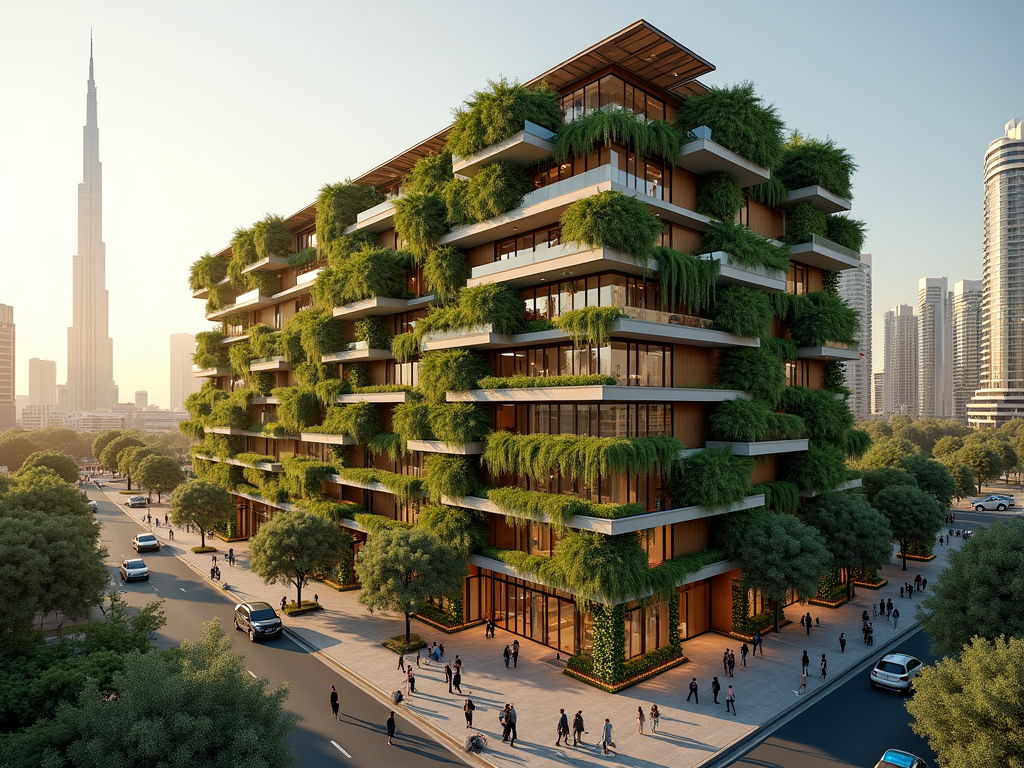Dubai’s green building regulations are emerging as pivotal elements in transforming the real estate landscape of the city. These regulations not only aim to reduce environmental impact but also enhance the livability and sustainability of urban spaces. By mandating eco-friendly construction practices, Dubai is setting a precedent that can positively influence future developments in the region and beyond. This shift towards sustainable building design is reshaping the market dynamics, driving innovation, and attracting eco-conscious investors. This article delves into the implications of these regulations and their long-term effects on the real estate sector in Dubai.
The Rise of Green Building Regulations in Dubai

The concept of green building is not new; however, its formal integration into Dubai’s construction framework marks a significant turning point. Initiated by the Dubai Municipality, these regulations are primarily guided by the “Green Building Code,” which emphasizes energy efficiency, water conservation, and sustainable material usage. By promoting thoughtful urban development, these regulations seek to diminish the ecological footprint of buildings while facilitating economic growth.
Key aspects of the green building regulations include:
- Energy Efficiency: Buildings are required to utilize energy-efficient technologies, reducing both energy consumption and costs.
- Water Conservation: Implementing water-saving fixtures and rainwater harvesting systems is mandatory.
- Material Selection: The use of sustainable and recycled materials is highly encouraged.
- Aerobic Design: Structures must be environmentally friendly and harmonize with their surroundings.
- Indoor Air Quality: Ensuring optimal air quality is vital for the well-being of occupants.
The Economic Impact of Green Building Regulations

The economic ramifications of Dubai’s green building regulations are multifaceted. Firstly, these regulations lead to reduced operational costs due to energy and water savings, which can significantly enhance the profitability of real estate ventures. Secondly, properties built under these standards are increasingly appealing to conscientious consumers and investors, thus raising their market value. Thirdly, these regulations are creating a burgeoning market for green technologies and services, stimulating local economies through job creation in emerging sectors.
Additionally, the government provides incentives, such as reduced fees or expedited approvals, for developers and businesses that comply with green building standards. This creates not only a competitive edge but also encourages innovation within the construction industry as firms seek to achieve or exceed compliance.
Implementing green building practices in Dubai is not without its challenges. Many developers and contractors are unfamiliar with sustainable building techniques and may resist changing established practices. Moreover, the initial cost of eco-friendly materials and technologies can be a barrier for investment, deterring some stakeholders from adopting these practices. Furthermore, the evolving nature of regulations may create uncertainty, causing apprehension among investors concerned about the long-term viability of their projects.
In addition, the limited availability of certain green technologies could hinder developers from fully committing to these regulations. Therefore, it is vital for the local government and private sector to collaborate closely to address these challenges and foster a more favorable environment for sustainable building practices in the future.
The Future of Real Estate in Dubai
As the global economy trends toward sustainability, Dubai’s focus on green building regulations is likely to have a lasting impact on real estate. The ongoing commitment to environmental sustainability not only attracts investment but can also safeguard the future of the city’s infrastructural growth. With global emission targets looming and a collective urgency for cleaner cities, Dubai is positioning itself as a leader in the transition to a sustainable urban future.
Furthermore, with increased public awareness of environmental issues, the demand for green buildings is expected to rise, further promoting the integration of these regulations into all segments of real estate. As the city continues to grow, it is anticipated that advancements in technology and practices will evolve, making green buildings not just optional but essential for survival in a competitive market.
Conclusion
Dubai’s green building regulations are setting a strong foundation for a sustainable future in the real estate sector. Through a combination of economic incentives, stringent regulations, and a drive toward innovation, the city is paving the way for environmentally conscious construction practices. While challenges exist, the long-term benefits substantially outweigh them, ensuring that Dubai remains at the forefront of sustainable urban development. As these frameworks continue to advance, we can expect profound shifts in how buildings are constructed and perceived in this bustling metropolis.
Frequently Asked Questions
1. What are Dubai’s green building regulations?
Dubai’s green building regulations are a set of guidelines administered by the Dubai Municipality that focus on sustainable construction practices, emphasizing energy efficiency, water conservation, and the use of sustainable materials.
2. How do green buildings benefit investors?
Green buildings tend to have lower operational costs, increased market value, and are more attractive to eco-conscious buyers, making them a sound investment for the future.
3. Are there incentives for developers to comply with green building regulations in Dubai?
Yes, the Dubai government offers various incentives, such as reduced fees and expedited approval processes, for developers who adhere to green building practices.
4. What challenges do developers face when adopting green building practices?
Developers may encounter challenges such as high initial costs, limited availability of green technologies, and a lack of familiarity with sustainable practices.
5. How will green building regulations affect the future of real estate in Dubai?
These regulations will likely elevate the demand for sustainable properties, drive innovation in construction practices, and position Dubai as a pioneer in urban sustainability efforts.
